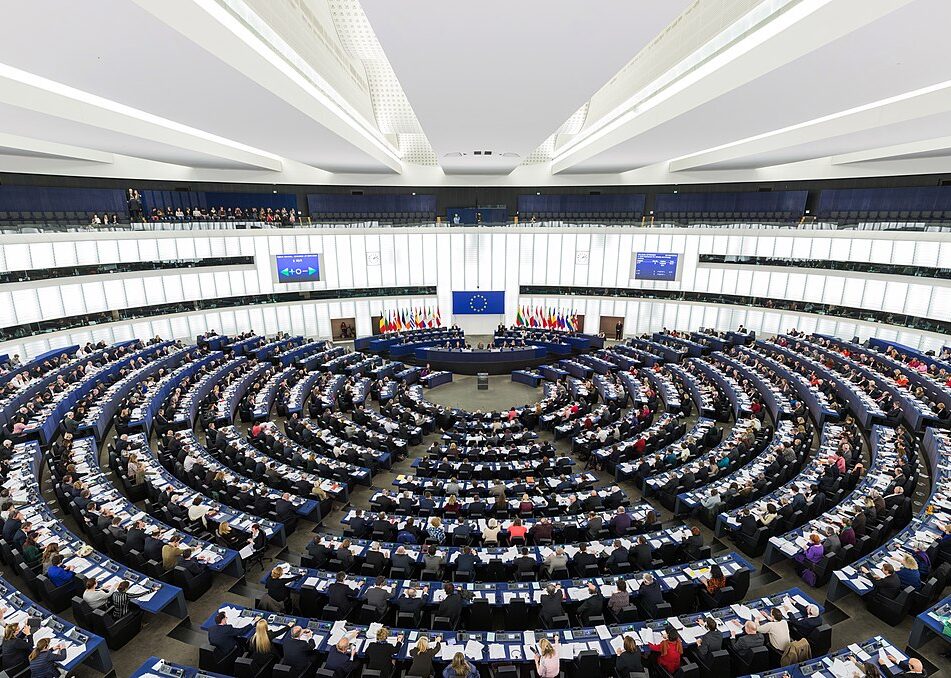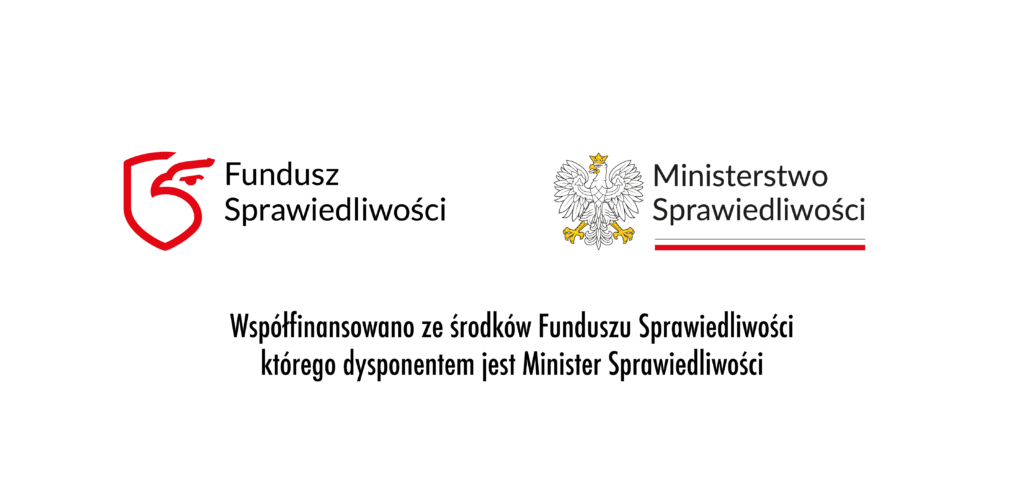Next Generation EU – The EU’s dangerous game with Poland

Could Poland lose access not only to the Next Generation EU “Recovery and Resilience Facility” funds, which are still being withheld by the European Commission over a long-standing dispute concerning the Polish judiciary, but also to the much-needed cohesion funds promised with the EU’s 2021-27 financial framework?
Olivier Bault
As the EU-27 budget’s biggest beneficiary until now, the former Eastern Bloc country has a lot to lose after two decades of dynamic economic growth as a member of the European Union, which it joined in 2004. However, those who value 70 years of European integration and believe democracy and the rule of law are important have good reasons to worry as well, as the conflict between Warsaw and Brussels could have very serious implications not only on the economic front and not only for Poles.
It is, indeed, quite an extraordinary situation whereby, in 2023, a Member State of 38 million people with a GDP per capita standing at 46% of the EU average (according to Eurostat figures for 2021) is being denied access to an EU-wide “recovery and resilience” plan whose stated goal was “to emerge stronger from the pandemic, transform our economies and societies, and design a Europe that works for everyone” with an overall budget of €750 billion (half as grants and half in the form of loans being made available to individual countries). Originally, those funds were to be spent in the years 2021–2026 to recover from the depression of the years 2020-21 linked to the Covid-19 pandemic, and this is exactly what is happening in much wealthier countries like Germany (with a GDP per capita at 133% of the EU average), France (113%), Italy (93.2%), Spain (78.6%), and others. At the end of March 2023, the European Commission boasted on its website having already disbursed €145 billion to EU countries under the Recovery and Resilience Facility (RRF). Of those, the Commission had transferred €2.25 billion in grants to Germany, €12.52 billion in grants to France, €28.95 billion in grants and €37.94 billion in loans to Italy, €31.04 billion in grants to Spain, and even €12.14 million in grants to tiny Luxembourg, the bloc’s richest member whose GDP per capita stands at 347% of the EU average. Apart from Poland and Hungary, only Ireland, the Netherlands, and Sweden had not yet been disbursed any money from the RRF by the end of the 1st quarter of 2023. For those three Western European countries, however, it is not a case of the European Commission withholding the funds but of their governments not having yet drawn down from the RFF.
In theory, of the €750 billion planned for the bloc’s RRF, Poland should have access to €58.1 billion (23.9 billion in grants and €34.2 billion in loans). Could it be that Poland will not obtain any Next Generation EU fund but will still be asked to take part in the repayment of the corresponding EU borrowing in the years 2028-2058 as well as to contribute more to the EU budget to cover for the grants allocated to the wealthier countries of Western Europe? Or is it possible that, without Poland itself having access to the Next Generation EU loan scheme, it will nonetheless have to pay its share of this new common EU debt if, say, Italy or Greece is unable to repay the loans received in the future?
The same questions can be asked for Hungary which was promised €7.2 billion in grants and is entitled to €9.6 billion in loans but also have those funds withheld by the European Commission.
This situation is all the more surprising that, as was reproached by the European Court of Auditors in a report published on March 8, 2023, “for RRF-funded investment projects, compliance with the relevant EU and national rules is not a condition for payment, unlike for other EU funding programs”.
Furthermore, it is said in the ECA report, it is only “in the coming years” that “the Commission intends to examine whether the checks carried out by each EU country are adequate” and “to assess whether the countries’ own control systems are able to prevent, detect and correct fraud, corruption, conflicts of interest and double funding”, the Commission being then “empowered to recover any amount from such illicit activities if the countries fail to do so”.

It looks like things are going differently for Poland and Hungary, though, and the two countries are asked to achieve a great number of milestones before any payment can be made. Poland, for example, had to put 116 milestones in its national Recovery and Resilience Plan to get the Commission’s approval, which was obtained on June 1st, 2022, despite the opposition of five Commissioners: Didier Reynders, a Belgian liberal in charge of justice, Věra Jourová, a Czech progressive in charge of “values” and “transparency” who is also vice president of the Commission, Margrethe Vestager, a Danish liberal in charge of competition, Ylva Johansson, a Swedish social democrat in charge of home affairs (including immigration), who is third executive vice-president of the Commission, as well as Frans Timmermans, a Dutch Labor Party member and first vice-president of the Commission in charge of climate action. Timmermans led the crusade against Poland and Hungary in the previous Juncker Commission, as First Vice-President in charge of rule of law issues. Reynders, Jourová, and Timmermans, in particular, later insisted Poland would not get any funds before achieving all the milestones mentioned in its national Recovery and Resilience Plan. The Commission’s formal approval was nonetheless a prerequisite to the Council’s green light for the disbursement of funds… at the European Commission’s discretion. Among Poland’s milestones, there is concern for the organization of the Polish judiciary which was followed by very far-reaching changes of a nature that cannot be found in any other country’s National Recovery Plan.
It should be noted in passing that the EU’s Recovery and Resilience Facility, which is the main instrument of that famous Next Generation EU program so highly praised by Eurocrats and national governments, gives the European Commission extraordinary leverage on member states’ national policies in the fields covered by the plan, as some countries have had to negotiate the small details of their policies to get subsequent tranches of the RRF money. This has happened with Spain and Italy, for example, but in their case, the negotiated policies have rather been limited to the areas of economics, finance, and green policies. However, the areas covered by the conditions set by the Commission can be very fluctuant, as the primary objective of that ambitious plan is, as stated on the Commission’s website, both “to boost the recovery, from the largest stimulus package ever financed in Europe” and to “rebuild a post-COVID-19 Europe” that “will be a greener, more digital and more resilient Europe.”
Hence, among the Commission’s updated objectives for Next Generation EU, one can now find things like “protecting the rights of the LGBTQI+ community and combating discrimination”. Although the official reason for refusing Hungary the disbursement of funds from the EU’s Recovery and Resilience Facility has to do with worries about the fight against corruption in that country, the LGBT issue seems to be the real friction point with Viktor Orbán’s government. Indeed, the Child Protection Law, which was adopted by the Hungarian Parliament in June 2021 and forbids the promotion of homosexuality and gender theory to minors, including in schools, has been called “a shame” by the Commission’s president, Ursula von der Leyen, and has been heavily criticized from within both the European Commission and the European Parliament. The European Parliament is now set to join a case against Hungary over that law filed by the Commission at the Court of Justice of the European Union (CJEU) with the backing of Ireland, Belgium, the Netherlands, and Luxembourg.
In the case of Poland, in January the Commission finally ended its legal action concerning the adoption of resolutions against LGBT ideology and/or in favor of supporting the traditional family model adopted by local governments, which had been dubbed “LGBT-free zones” in Brussels and in the Western media. The Commission has thus finally acknowledged that the said resolutions were not discriminatory towards homosexuals or other categories of people, although before that January decision some of the said local governments (about a hundred in total) had been cut from EU funds precisely because of those resolutions.
As far as the Next Generation EU funds are concerned, however, the core of the Commission’s demands to disburse the first tranche concern not LGBT rights, but Poland’s judiciary.
One of Poland’s main milestones, whose accomplishment was scheduled for the end of June 2022, was the liquidation of its Supreme Court’s Disciplinary Chamber, as that Disciplinary Chamber was deemed by the Commission to be under the influence of the executive and legislative powers. This is because its members had been nominated by President Andrzej Duda based on candidacies proposed by a reformed National Council of the Judiciary (KRS), with a majority of KRS members now appointed by the Sejm (the lower house of the Polish parliament). The composition of the Polish KRS and the procedure for electing its members are actually now very similar to that of its Spanish equivalent, the Consejo General del Poder Judicial (CGPJ), but what is all right for Spain when it is governed by a coalition of euro-enthusiastic socialists, communists and other members of the progressivist far left with ideological affinities to the elites in Brussels is not all right for Poland when it is governed by sovereignty-minded Christian conservatives, or so it seems to be in the eyes of EU institutions.
So, the Disciplinary Chamber was replaced last year by a “Chamber of Professional Responsibility” populated on a rotational basis by Supreme Court judges chosen by lot to make sure the chamber no longer be said to be under political influence, and all judges who had previously been sanctioned by the former Disciplinary Chamber were given the possibility to request their case to be re-examined by the new chamber.
It then appeared that, seen from Brussels, this would not do, and the European Commission kept considering that this very important milestone had not yet been achieved and that, therefore, the Next Generation EU funds planned for Poland could not be unlocked.

The Polish Foreign Affairs Minister, Szymon Szynkowski vel Sęk, was then sent to Brussels to discuss a new bill that would satisfy the European Commission. As unusual as it may sound for a country that is supposed to be sovereign and democratic, this is exactly how the draft law was presented on his return in mid-December, ie. as being the result of direct negotiations conducted with the European Commission in Brussels in order to meet an important milestone agreed in the Polish Recovery and Resilience Plan. It was also clearly explained to Polish MPs that they were not allowed to make any substantial change during their parliamentary work on the bill from Brussels if Poland was to receive the long-awaited EU funds. This shows how much leverage the unelected European Commission has gained thanks to the EU-wide Next Generation EU plan that was adopted in December 2020. Unfortunately, now having at its disposal the so-called “rule of law” mechanism, the truth is that the European Commission now has the same sort of leverage with funds from the annual EU budget from the multiannual financial framework for the years 2021-27, hence the speculation running high in the Polish media that the Commission is now going to withhold cohesion funds worth €75 billion for Poland. Unless, of course, the democratically-elected Polish parliamentary majority finally bends to the will of Brussels. This is something Polish MPs have already done, actually, by voting into law the bill dictated by Justice Commissioner Didier Reynders – a Belgian politician – and his colleagues. However, on February 27, President Andrzej Duda referred the law to the Constitutional Tribunal which is yet to review its constitutionality.
As a matter of fact, what was agreed in Brussels raises serious doubts in light of the Polish Constitution. The first issue is that it provides for a transfer of the body of last instance in disciplinary procedures concerning ordinary court judges from the Supreme Court to the Supreme Administrative Court (NSA), Poland’s highest administrative court. The Polish constitution gives the NSA the power of control over administrative courts (the ones that preside over cases involving public administration), not ordinary courts. The second issue, which is more serious, in particular in light of the President’s constitutional prerogative to appoint judges (among the candidates proposed by the National Council of the Judiciary), is that the draft law negotiated in Brussels by the Morawiecki government would give any judge the right to question the impartiality of other judges and the validity of their rulings. This has to do with the fact that the Von der Leyen Commission and Commissioner Reynders consider that judges who have been appointed by President Duda after the reform of the National Council of the Judiciary could be under political influence because of the judicial council’s new composition, and there should, therefore, be a possibility to question their impartiality enshrined in Polish law for the Polish judiciary to be deemed independent and impartial. Duda thinks this would encroach on his constitutional prerogative to appoint judges, as it would in fact allow judges to question the validity of the appointments made by the President of the Republic. Another issue raised by President Duda and many law experts, among them by the country’s Supreme court, is that this would also bring judicial uncertainty, as past rulings of judges failing the “impartiality test” could then be questioned. The proposed bill, “if it were to be adopted, would open the way to an unconstitutional challenge to the prerogative of the President of the Republic, which could lead to legal chaos on a scale never seen before”, the Polish Supreme Court wrote in its opinion last December. Such legal uncertainty would, by the way, go against EU principles.
It is hard not to see all this as yet another blatant attempt by EU institutions, ie. the European Commission but also the European Parliament and the Court of Justice, at setting a precedent, taking advantage of Poland being the biggest beneficiary of the EU budget in a push to give more powers to judges in the EU under the supreme control of the CJEU. The latter has indeed stated recently, in cases concerning Poland and Romania, that national judges should be allowed to question any law voted by parliament and even their country’s constitutional principles whenever they believe that these are in contradiction with EU law and the general principles set out in the treaties (like the values listed in general terms, in Article 2 or the need for a Member State to have an adequate judiciary to ensure legal protection in the fields covered by EU law, as set out in the form of one single vague sentence in Article 19 of the Treaty of European Union). If there is a conflict, the court of last instance should then be, in the eyes of the Brussels elite, the Court of Justice of the European Union. Such an evolution of the EU through case law would make the EU more federal, but unfortunately much less democratic too, the “rule of law” concept being apparently used to create an EU-wide government by judges to replace national parliamentary democracy. It is no coincidence that the EU’s crusade against Poland and Hungary has become so ugly when the governments of the bloc’s two biggest countries, Germany and France, are both openly in favor of a federal European Union while the governments of the two Central European countries are in favor of keeping to the letter of the current treaties and respecting the principle of subsidiarity, transferring to Brussels only those powers that are necessary to carry out what can be better done at EU level.
This is why the current use of Next Generation EU funds and also cohesion funds, with the new “rule of law mechanism” having already been triggered against Hungary by the European Commission, to blackmail Poland and Hungary into submission should leave no one indifferent elsewhere in the European Union. And the situation is all the more noxious that the Next Generation EU funds are also supposed to be used as a response to the war in Ukraine. In the words of the European Commission itself, “The funds are being used to address the most important challenges before Europe and support those in need. In the aftermath of Russia’s aggression on Ukraine, the EU budget was mobilized to provide emergency assistance and support, in Ukraine and in the EU countries, and to alleviate the humanitarian consequences of the war.”
Needless to say, in the current situation the Commission’s financial blackmail depriving Poland of much-needed Recovery and Resilience funds stands in sharp contrast to that Member State’s enormous contribution, including in financial terms, to supporting Ukraine and giving shelter to millions of refugees, and it certainly plays into the hands of Putin’s Russia.
In the long run, it has the potential to eventually blow the European Union to pieces or, to the contrary, lead to a federal but undemocratic EU, where voters will have very little influence left on the laws of their land as they will be governed by an enlightened elite made up of judges appointed by other judges, with an all-powerful and uncontrolled Court of Justice of the European Union at the top. Let us not forget that one major country has already left the bloc, among other reasons because of its increasingly undemocratic nature due to the evolution of the CJEU case law that stood in contradiction to the UK’s century-old fundamental democratic principle of unlimited parliamentary sovereignty.




